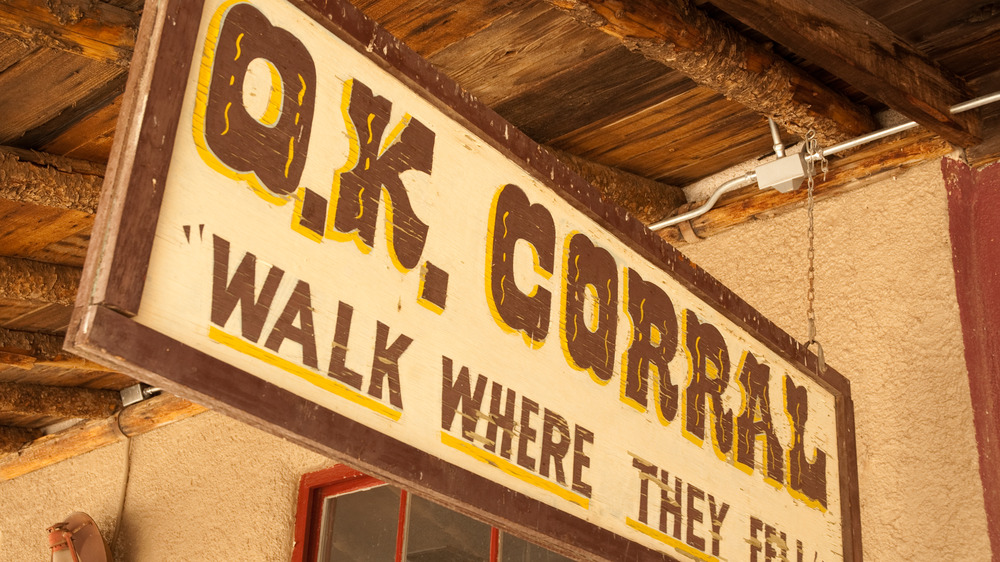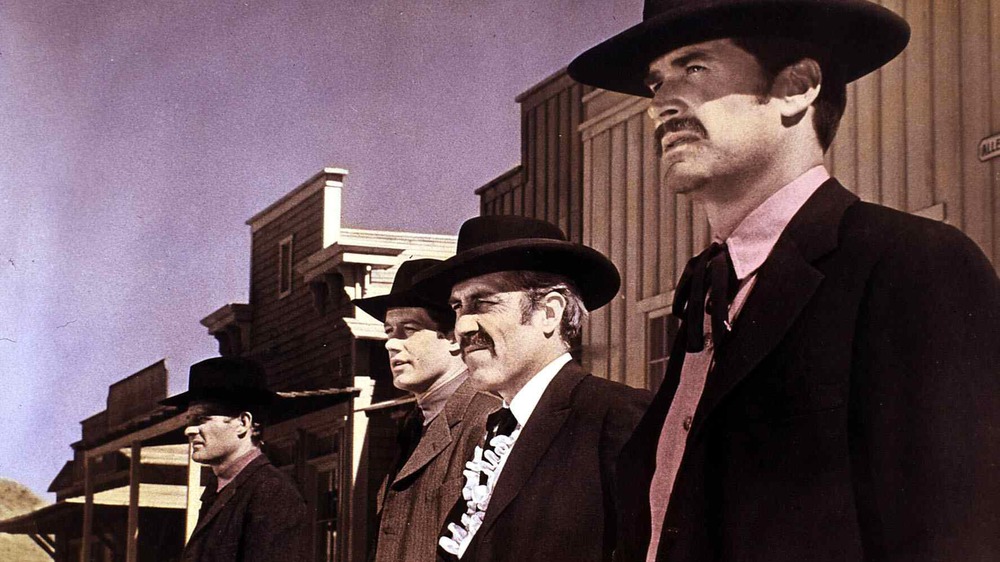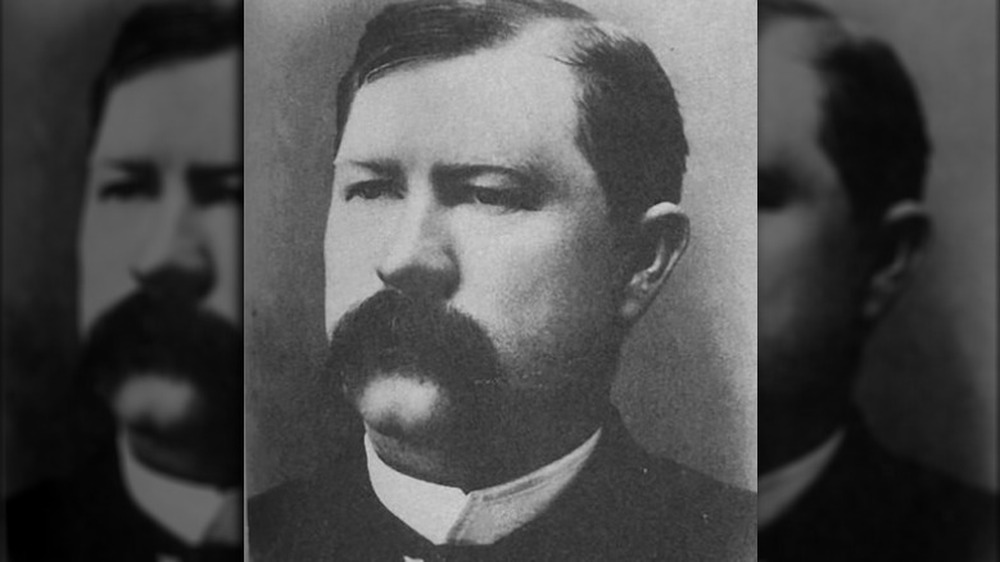This Was The Real Hero Of The Gunfight At The O.K. Corral
Everyone obsessed with the Wild West has undoubtedly heard of the gunfight at the O.K. Corral. The shoot-out made legends of Wyatt Earp, John Henry "Doc" Holliday, and the rest of the participants. But while many consider Wyatt the breakout star of the O.K. Corral, he may not have been the real hero of the gunfight.
Before the gunfight, the O.K. Corral in Tombstone, Arizona was a small-town livery. And technically, the gunfight didn't even happen in the actual corral. As for the fight itself, the Earp brothers — Wyatt, Morgan, and Virgil — were on hand to keep the peace, which did not sit well with the cattle rustlers.
According to HistoryNet, Wyatt was not even the marshal of Tombstone at the time of the gunfight. That honor belonged to Virgil, his older brother. Virgil had been a Union soldier during the Civil War and moved to Tombstone with his brothers. He was appointed a U.S. Deputy Marshal for the region, to deal with Cochise County Cowboys, a group of outlaws. A town's marshal, on the other hand, was more like a chief of police. When the Tombstone's marshal was killed, Virgil was given his position, making him a double marshal for Tombstone.
One of the town's statutes was a no-carry law. Guns were to be turned in when entering town, to be retrieved when the owner left. The day of the gunfight Virgil deputized Wyatt, who had a reputation from his time as a lawman in Dodge City. Virgil also deputized his other brother, Morgan.
He tried to prevent the gunfight
In the hours before the gunfight, the Earps and Holliday had several violent run-ins with the Cowboys, a group that included several members of the Clanton and McLaury families. Earlier that day, Virgil managed to calm both parties down and avoided another confrontation with the Cowboys. Still, the Cowboys remained armed, and openly threatened the lives of the Earps. Virgil, his brothers, and Holliday confronted the Cowboys in front of the corral on October 26, 1881.
Virgil ordered the Cowboys to "throw up your hands." They refused. No one knows for certain who fired first, but the gunfight erupted — 30 shots in about 30 seconds, writes True West Magazine. At the end, the two McLaurey brothers and Billy Clanton were dead or dying. Doc, Morgan, and Virgil were all wounded.
The press lauded Wyatt as the hero of the gunfight, but it was really the marshal, Virgil, who stood out during the gunfight. He tried to stop it from happening; once it began, he kept firing, even after being seriously wounded in the leg. Thanks to his Civil War training, he managed to keep the fight securely on their side.
After the gunfight, Virgil was placed on probation, pending investigation. He, along with his brothers, was acquitted. The Cowboys, though, weren't satisfied. Within a few months they assassinated Morgan and ambushed Virgil. He was severely wounded, losing the use of his right arm, said the National Park Service. He had to return to his parents' home in Colton, California, to recuperate.
But Wyatt is still more famous
Wyatt sought revenge for the murder of his brother, and it was his search for justice that helped make him famous. While the public became fascinated with Wyatt, Virgil (pictured above) kept working as a peace officer. He couldn't go back to Tombstone (the town mourned the Cowboys; public opinion turned on the Earps), but he was hired to guard train tracks owned by the Southern Pacific Railroad, even though he only had use of one arm.
HistoryNet said Virgil was almost involved in another gunfight after the officials and residents of San Bernardino, California, wanted to allow California Southern Railroad to use the tracks. Tensions were high, and Virgil decided to diffuse the situation by putting his revolver down to avoid bloodshed.
Virgil and his partner, Allie Sullivan, settled in Colton, where Virgil was elected marshal several times. By 1889, he resigned his post and took a plot of land in Prescott County in Arizona. He ran for marshal in the town but pulled out due to health issues following a mining accident. He also reunited with his first wife and daughter in Oregon.
Virgil caught pneumonia and died in 1905. At that point, Wyatt was the only remaining participant in the gunfight at O.K. Corral. So maybe that's why the press hailed him as the hero of the battle — he was the only one left to tell the story. But really, it was Virgil who tried to stop it, and it was Virgil who heroically kept shooting, even though he was wounded.


